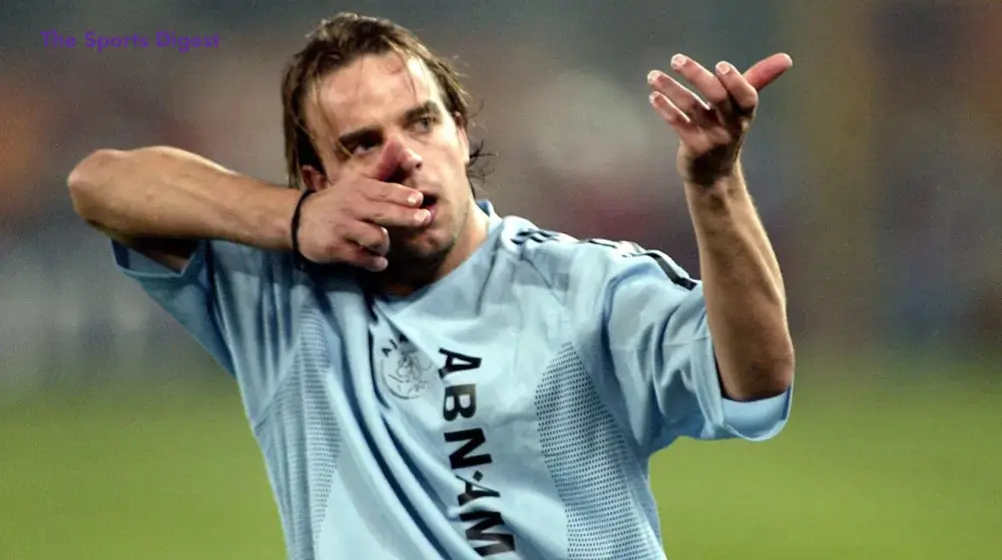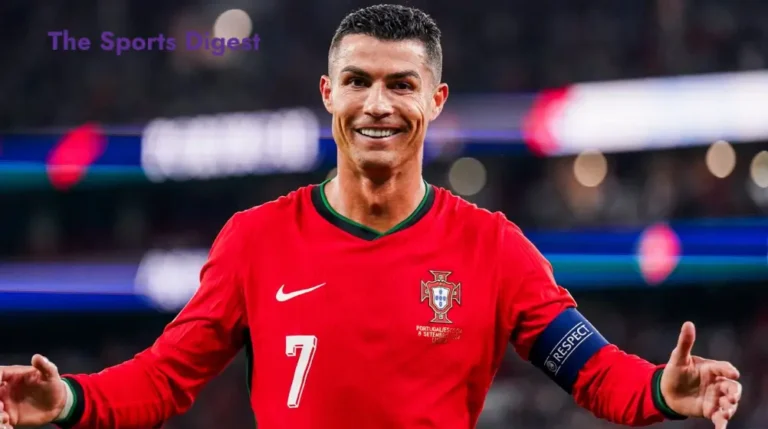Andy van der Meyde: Scandalous Downfall
Ajax Amsterdam’s youth academy has long been revered as one of football’s finest talent factories. In the early 2000s, the Dutch giants produced an exceptional crop of young players who would go on to dominate European football. Among names like Zlatan Ibrahimović, Rafael van der Vaart, and Wesley Sneijder stood Andy van der Meyde—a gifted winger whose trajectory promised similar heights but ultimately descended into a cautionary tale of talent squandered.
While his Ajax teammates went on to claim Champions League titles, domestic honors across Europe’s top leagues, and international acclaim, Andy Van der Meyde‘s career became defined not by his on-field brilliance but by his struggles with alcohol, drugs, and the temptations that accompanied his professional football status. His time at Everton, in particular, became emblematic of a promising career derailed by off-field demons.
Table of Contents
The Promising Ajax Years (2000-2003): A Winger’s Ascent
During his time at Ajax, Andy Van der Meyde showcased all the attributes of a world-class wide player. Technically gifted with exceptional dribbling ability and precise crossing, he drew comparisons to none other than Portuguese legend Luís Figo. His consistent performances made him an integral part of the Ajax setup, culminating in the Eredivisie and KNVB Cup double in 2002.
Unlike many wingers who are judged primarily on their goal tally, Andy Van der Meyde’s game was built around creating opportunities for others. His ability to beat defenders and deliver pinpoint crosses made him a valuable asset to the team’s attacking arsenal. Such was his form that by 2002, he earned his international debut for the Netherlands, marking the occasion with a goal against the United States.
The stark contrast between Van der Meyde’s trajectory and that of his Ajax teammate Zlatan Ibrahimović is particularly telling. Having shared beginnings at the Amsterdam club, their paths would diverge dramatically. Ibrahimović later reflected on their time together, noting the “crazy” group dynamic they shared during those formative years—a foreshadowing of the different approaches they would take to managing their careers.
Turning Point: Andy van der Meyde at Inter (2003-2005)
What seemed like a career advancement—a transfer to Inter Milan for a fee believed to be around €8 million—ultimately became the first step in Andy Van der Meyde’s professional decline. The move represented a significant shift in environment: from being a key figure at Ajax to becoming a peripheral player in a star-studded squad featuring the likes of Christian Vieri, Dejan Stanković, and Fabio Cannavaro.
This transition from big fish in a small pond to relative anonymity proved challenging for the Dutchman. Over two seasons in Italy, Van der Meyde managed just 32 league appearances—a significant reduction in playing time that would plant the seeds for his later struggles. The lack of regular football began to take its toll not just on his performance but on his mental state.
Merseyside Misfortune: Everton and a Spiral of Decline (2005-2009)
In 2005, Everton were riding high after securing Champions League qualification under manager David Moyes. Seeking to strengthen their squad for the challenges ahead, the Merseyside club turned to Andy Van der Meyde as a potential solution to their need for creative wide play. On paper, it seemed a shrewd acquisition—a technically gifted player from one of Europe’s elite clubs available at a reasonable price.
Financial incentives played a significant role in Van der Meyde’s decision to join Everton. The club offered him €37,000 per week, doubling his Inter salary—a considerable upgrade that would later fuel his self-destructive lifestyle.
The warning signs appeared early. A groin injury delayed his debut, the first in a series of physical setbacks that would limit his impact at Goodison Park. More concerning, however, was the revelation that Andy Van der Meyde had begun turning to alcohol during his second year at Inter, using it as a coping mechanism for his lack of playing time and resulting depression.
With increased wages at Everton came increased indulgence. Van der Meyde embraced a lavish lifestyle that included purchasing a Ferrari and becoming a regular at Liverpool’s strip clubs. His marriage crumbled as he began an affair with a stripper named Lisa—another consequence of his increasingly chaotic personal life.
January 2006 brought a severe thigh injury that sidelined him for extended periods, further distancing him from the first team. These injury layoffs became dangerous periods of excess, as Andy Van der Meyde later admitted: “When I was injured, I’d drink and look for women to help me forget my problems.”
The downward spiral continued with clashes with manager David Moyes, concern over his daughter’s health, worsening alcoholism, and eventually prescription drug abuse—stealing sleeping pills to combat insomnia. What had begun as a promising career move had devolved into a personal and professional nightmare.
Rock Bottom and Return: Post-Everton and Reflection
After his release from Everton in 2009, Van der Meyde’s descent continued. He turned to harder drugs, specifically cocaine, while still partying in Liverpool—a period he later recognized as potentially fatal if it had continued. This realization prompted his return to the Netherlands, away from the environment that had facilitated his decline.
An unsuccessful attempt to revive his career at PSV Eindhoven followed, but the damage was done. By 2011, at just 31 years old, Van der Meyde had retired from professional football—an age when many players are still in their prime.
In sobriety, Van der Meyde has shown remarkable candor about his experiences. Through his autobiography “Geen Genade” (No Mercy) and numerous interviews, he has openly discussed the mistakes that derailed his career. “At one moment I was second behind Figo as the best winger in Europe, and sometimes I think I wasted it,” he reflected, acknowledging the potential he failed to fulfill.
His experiences led him to warn other players about similar pitfalls. When Royston Drenthe moved to Everton, Van der Meyde cautioned him about the temptations of Liverpool—the nightclubs, alcohol, cocaine, and women that had contributed to his own downfall.
While his former teammate Ibrahimović continued collecting trophies across Europe’s top leagues, Van der Meyde has sought to rebuild his connection to football by pursuing UEFA coaching badges. This path back into the game offers not just professional redemption but an opportunity to prevent future players from repeating his mistakes.
Conclusion: Lessons from a Career Unfulfilled
Andy van der Meyde’s story stands as a powerful reminder that talent alone cannot sustain a career at the highest level. The psychological challenges of professional football—the pressure, the isolation, the sudden wealth, the temptations—require resilience and character that extend beyond technical ability.
What distinguishes Van der Meyde’s narrative from many similar tales is his willingness to acknowledge his failings and use them as a teaching tool. In doing so, he has transformed a career of unfulfilled potential into a valuable cautionary tale for young players navigating the pitfalls of professional football.
As he continues his coaching journey, Van der Meyde carries with him not just the memories of what might have been, but the hard-earned wisdom that could save others from similar fate—perhaps his most important contribution to the game he once seemed destined to conquer.
Have you ever read an article like this?
There are no reviews yet. Be the first one to write one.






